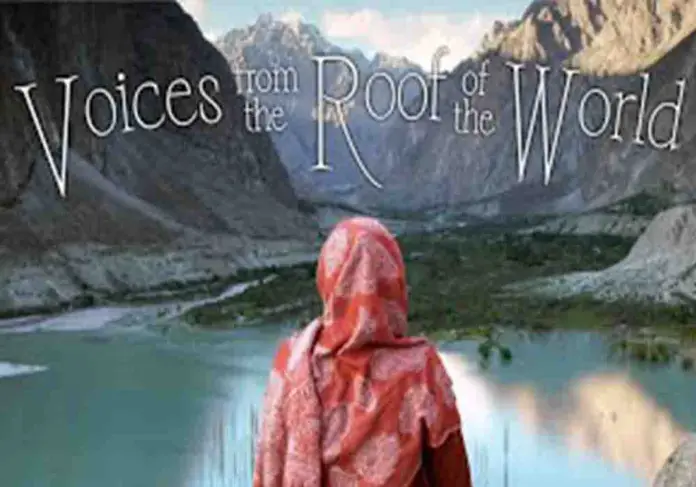Directed and produced by Haya Fatima Iqbal, The Sky is Far, The Earth is Tough, is a heart-wrenching documentary inspired by the life of people living in Gilgit-Baltistan.
The documentary tells how this seemingly beautiful place known for enticing tourists through its natural scenery, is not without its perils. As the documentary shifts between localities in Gilgit-Baltistan from Ghizer to Badswat and Hatoon and Darkut, it reels out the real story each locale has to tell despite the common view that visitors always relish the unparalleled exquisiteness of this corner of Pakistan.
Photography is a hobby that seeks to capture the Kodak moments on a pretext to keep the tradition, culture and identity of a place alive. However, very few people are aware of the dangers of living here. For those who spend their days and nights here, it is not always a heavenly abode. The dangers of flooding, glacial outbursts, avalanches and rockfalls keep the people vigilant and on alert at all times.
Through the years up to 2019, 27 geological disasters spawned by climate change have occurred there, the documentary unveils. The Badswat GLOF (glacial lake outburst flood) incident, for example, happened in July 2018, when the entire village was submerged and a lake got formed in its place.
As Shahbano, a school teacher talks of the fear and mental trauma that the people of that area underwent, she reiterates the fact that for years, the survivors could not sleep without taking sleeping pills.
The scene then shifts to Zarb Ali of Darkut, a poet and a climate refugee. He highlights deforestation as being the main cause of flooding. As he delves into the environmental dangers that he is exposed to, such as avalanches in the winters and flooding in the summers, he is forced to relocate to a safer haven. The pain of leaving his homeland cannot be described. He says, “I would advise people never to migrate even if their area has been flooded.”
The attachment to one’s roots and the agony of leaving your home can sometimes take one’s life, Zarb Ali believes.
The idea is reaffirmed in what Shahbano says, “Sometimes I curse the lake. It destroyed our home, leaving us homeless.”
The documentary ends on the incident of a mother and daughter’s collective suicide, explaining how many people give up their lives because the pain is far too much for them to absorb. Yes, mountain people have their share of anger at nature’s not-always-benevolent face. Apparently, they may emerge as brave and courageous but they too, like every human being, want to vent out their feelings of hopelessness and resentment.
On the whole, this documentary is a fantastic piece of work. With stunning visuals and an authenticity that is unparalleled, it wins the hearts of the spectators. The element of the local dialect and language translated through subtitles keeps the indigenous flavour intact.
Moreover, the story being told through the lens of the real people living in Gilgit-Baltistan makes it all the more believable and original. It is a charming documentary that rushes the adrenaline in the body from the fear and apprehension of the gargantuan natural calamities.







